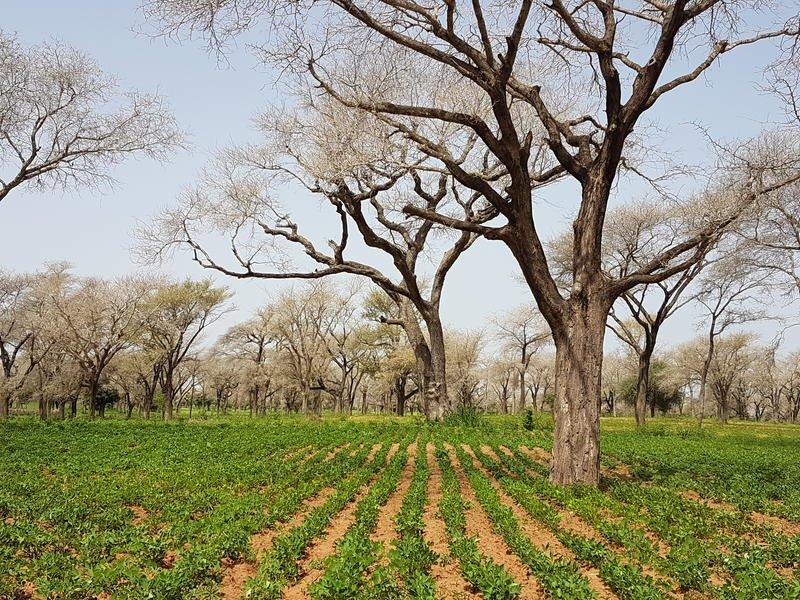Just out 20 January 2026
- Home
- CIRAD news
- News
- Research and Innovation to decarbonise the Agriculture and Land-Use sector
Research and Innovation to decarbonise the Agriculture and Land-Use sector

Agroforestry is one of the possible ways to decarbonize agriculture and land use recommended in the policy brief © Caroline Dangléant, CIRAD
Impact that goes beyond Europe
Europe‘s position in world agricultural trade means that agriculture and land use R&I policy choices concern not only the European territory, but also its trading partners worldwide. The European Commission’s ‘Farm to Fork’ strategy for sustainable food is a key component of the European Green Deal, and DEEDS therefore considers that it is essential to facilitate a wider discussion on the priorities to be given to European environmental action and the ways of implementing them.
Agriculture and land use are responsible for just over 10% of overall European greenhouse gas (GHG) emissions. As such, the sector has received little attention in decarbonization strategies so far. It is, however, a key sector as it has the ability to both deliver substantial emission reductions and offset emissions from other sectors through carbon sequestration.
GHG emissions from European agriculture stem mainly from livestock and from synthetic fertilizer and manure use. Animal-based proteins make up a large share of agricultural produce consumption in Europe (60% of the total consumed), and are particularly intensive in their use of land and water. This generates environmental degradation both in and outside Europe, since about 80% of all proteins consumed in Europe are imported from non-EU countries. Moreover, food losses and waste in Europe amount to 280 kg/person/year, the second highest rate per capita in the world.
The priorities
The policy brief identifies the main priorities for R&I to decarbonize agriculture and land use:
- Transformative technologies and practices, which means adopting and refining existing solutions;
- New patterns of food consumption, to reduce the environmental footprint of European agriculture;
- Waste management, notably by reducing food losses and waste;
- Preserving carbon stocks in Europe without deteriorating those of our main trade partners: steps taken in Europe should not induce deforestation outside its borders;
- Bioenergy production, to produce energy while storing carbon in vegetation.
It points out that public policies in this area must be based on appropriate sustainability criteria and indicators to report on their direct and indirect effects in a reliable and transparent manner.
The recommendations
Lastly, the policy brief makes a range of policy recommendations, notably highlighting the prospects offered by agroecology and agroforestry and the need to target emissions that are especially important in Europe, such as those from livestock activities and synthetic fertilizers.
It observes that R&I in agriculture could contribute to the success of the Green Deal and stresses the necessity of bringing farmers on board to ensure the sustainability of the sector and enhance innovation.
The authors acknowledge that funding will be key to implementing the Green Deal, and see mobilizing the private sector and using the CAP as a financing tool as appropriate solutions. They call on research to contribute by proposing cost-efficient financing schemes that take into account the range of mitigation potentials across European regions and different farm types.
They conclude by saying that it is essential to facilitate a wider discussion on the priorities to be given to European environmental action and the ways of implementing them, which they feel should be the true founding basis of the European Green Deal that would give it its full meaning.
* The DialoguE on European Decarbonisation Strategies (DEEDS) delivers state-of-the-art knowledge on decarbonization pathways and facilitates knowledge co-creation with policy, business representatives, scientists, NGOs and other stakeholders



























